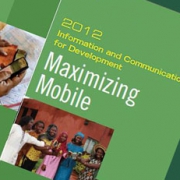Participatory Mapping for Government Accountability
In India, fishermen living in the city of Olcott, Chennai have relied on the beach for hundreds of years to earn livelihoods. After the British acquired this three-mile strip of land, members of this fishing community were deemed trespassers in their own homes.
Now, participatory mapping drawn up by Olcott citizens helps to create a visualization of the relationship between the fishermen and the coastline to make the government more responsible and accountable.
This is the objective of Transparent Chennai, a hands-on platform created by The Center for Development Finance, working under a Rising Voices Microgrant.
Aggregating, collecting, and displaying data for public interest use, on Usur and Olcott fishing communities in South Chennai, provides a visual to the gaps where legislation needs to be created. This ensures that fisherman have access to the water and can claim rights to their land.
The statement on the website clarifies their end goal:
Our goal is to enable residents, especially the poor, to have a greater voice in planning and city governance
Residents of Usur and Olcott engage in participatory workshops where they contribute to the map, mark the boundaries of their village, and land use patterns. They can show varying livelihoods within the community, and how space outside of their homes is used, particularly along the water.
The maps identify local resources, points of historical and ritual importance, and gaps in local infrastructure and government services. By providing easy-to-understand information, the maps can better highlight citizen needs, shed light on government performance, and improve their lives in the city, one issue at a time.
Transparent Chennai believes that lack of data has sometimes allowed for the government to evade its responsibilities and to provide basic entitlements to all city residents.
They collaborate with citizen to integrate accurate, first hand information. “We work closely with individuals and citizens’ groups to create data that can help them counter inaccurate or incomplete government data, and make better claims on the government for their rights and entitlements,”
Creating the maps is not limited to just the perspective of adult citizens, though.
Recently, eighth grade students at Olcott Memorial School in Besant Nagar participated in a four-week mapping workshop run by Transparent Chennai. Using Google Earth and Google Maps, along with paper maps, they marked their own important landmarks of the city.
Anjney Midhall, who facilitated the mapping workshop describes the scene at the school: “…around me, children of the eighth grade at the Olcott Memorial School in Besant Nagar are busy mapping out their school’s campus in groups, developing their own unique symbols and keys, color schemes and layouts…By the end of the session, maps emerge, each diagram telling a story of its own.”
Through locally generated maps, Transparent Chennai aims to do their part in rectifying a lack of data and the lack of government accountability to meet the basic needs of its citizens. ‘Participatory mapping’, is one of the best ways to do this.







































